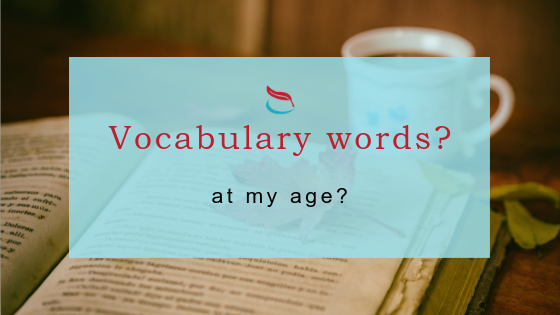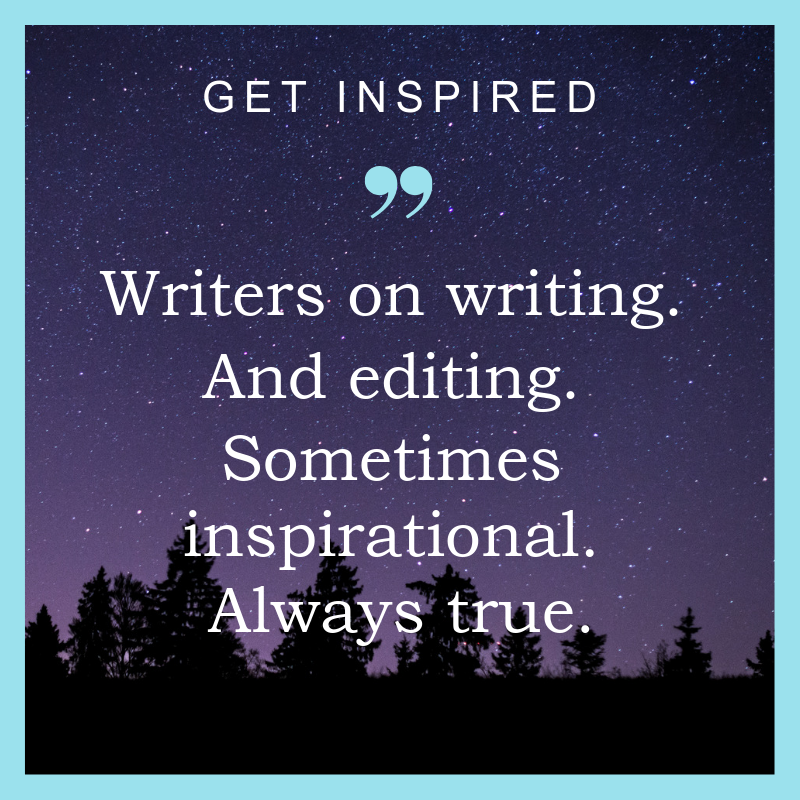|
More words help provide you with more ideas, write tighter (by killing your “helping” adverbs), provide your readers with better description, and even offer a sense of “realness” or honesty to what you describe. Back in 5th grade, my kid got vocab words. I only remember “abut” because… well… we ALL adopted the 10-year-old’s sense of humor. The vocab words stopped coming home in 7th grade and I found I missed them. Yes, I am an editor and I like words, so that was part of it. But it was more than that: your ability to communicate is based not only on how you use words, but also on which words you use. More words gives you more options. TL;DR? New words make you write gooder, so learn more. Ideas, more ideas!In a previous life, I was a linguistics major (for a semester). At the time, scientists were trying to determine whether the thoughts we are able to think are determined by the language we speak. The questioning went (if I remember right!), if you don’t have a word for something, can you even think about it? I’m sure this argument is much more complex than I’ve just written because I can still feel overcome with emotions, and think about what it feels like, without knowing the Yiddish word verklempt. And I can understand taking pleasure in someone else’s pain even if I don’t know the German word schadenfreude. (But then… I’m not always a nice person…) On the other hand… If I don’t know what an orrery is, then I can’t have one sitting on my character’s desk to show either a) his delight in having an antique or b) his patronage of this new field of engineering. If I don’t have multiple words for various types of snow, do I pay attention to what kind of snow is falling out the window? (I do not. I hate snow.) Snow has no importance to me or my culture, so it’s all just snow. Snow to Inuits, however, is a pretty big deal, to the point it’s estimated they have more than 50 words to describe it. Language helps us make sense of our world, and writing helps us make sense of our world, and reading what others have written helps us make sense of our world. The more words we have at our disposal, the better job we can do sharing our ideas. Or the more ideas we can have in the first place. I’m not saying go out and learn all 50 words that the Inuits use for snow. That’s crazy. But… knowing there are 50 words for snow sorta* makes me want to create a frozen world where that sort of knowledge might drive an interesting plot… * And by “sorta” I mean not at all. I’m getting cranky just thinking about how much snow must fall and for how long throughout the year for there to be 50 different kinds of it. I want you to know: I really, truly hate snow. Kill your adverbsShe used very few words to express herself. vs She was laconic. He was very mad. vs He was furious. She was very hungry. vs She was famished. The orrery was very, very old. vs It was antediluvian. These are simple sentences that don’t necessarily capture the true essence of a better vocabulary, but bear with me here. I started writing this on Halloween, so I was in a bit of a sugar coma… (And then I stopped writing it because I had to answer the door to some 200 little beggars. Though some were totes adorbs and some were truly scary. Kudos to the two middle-school girls dressed up as the twins from The Shining. Shudder… And then I got busy with other things and forgot to come back here. Sigh.) Adverbs weaken your writing because they can’t be visualized. What does “very” look like? Once we’ve skipped over that “very,” all we have left to work with is “mad,” which may not be as powerful a word as you wanted. More words at our disposal allows us to tighten our writing by ditching adverbs and other modifiers. Better descriptionNew words give you the opportunity to describe your scenes better. Part of reading is creating scenes in our heads: how does what we’re reading translate to sight and sound and touch? A leafy bush vs a hydrangea. Fruit vs a peach. Fretful whining vs querulous. For people who know what a hydrangea is, they get a beautiful mental picture of what you’re describing. For those who don’t, maybe they’ll look it up, but even if they don’t, they’ll get “plant” from the context. Fruit doesn’t give readers much to work with. Peach gives us everything: the feel of its skin, its color, the firmness of the flesh when you bite into it, its scent and taste. For some of us, we even get an idea of what time of year it is (or whether that peach has been imported or magically ripened). (Sure, you probably don’t need to learn what a peach is, but you might want to learn about rambutans or dragonfruit. (I learned about these while visiting a chocolate plantation in Hawaii. Slimy little fu- Er… I did not enjoy them.)) “Mad” isn’t very nuanced (Gah! Very!). Irate, ballistic, indignant are all shades of “mad” that better describe the emotion your character is feeling. You don’t lose anything by using a better, fancier, and/or more descriptive word except maybe a few adverbs.* But you gain a vivid mental picture of whatever you’re creating, which draws your readers in and keeps them coming back for more. * Well, that’s not entirely true. The more specific a word you choose, the more baggage is attached to that word, so… you may need to do your research. For example, if you have a farm-to-table culture (like in, say, a pre-industrial society), then you need to know that strawberries are not typically still in season when apples ripen. VerisimilitudeNew words help you evoke a scene and add verisimilitude. (That’s a twofer of vocab words right there in that sentence!) If you’ve never lived in a place that has graupel or freezing fog, you may not know that these things exist. If you decide to write about a character who lives in the Seattle area, in the late fall/early winter, and you DON’T include these things, your readers who HAVE lived in Seattle may get a little testy. Pfft, they’ll think. She doesn’t know squat about Seattle. Her story better be good so that I can just ignore those problems… Using words that are specific to a place, or even to a time, create a more realistic scene in our heads, which gives us confidence that what you’re writing is true. And having that truth in place allows us to more easily follow you into the make-believe portions of your writing: you’ve engendered trust in us. Get studying! Studying doesn’t have to stink like it did in school. You won’t be graded. You’re SAT scores won’t be affected. (Well… unless you are still a high school student, in which case… studying may stink but it will all be worth it in the end!) Far as I can tell, all the major dictionaries offer word-of-the-day or word-of-the-week posts on Pinterest and Instagram. Start flagging the words that appeal to you. You can ask for a word-of-the-day calendar next gift-giving season. When you read on your Kindle*, look up words you don’t know, or you only think you know. Look out for those writers who stretch your vocabulary (Barbara Hambly and Neal Stephenson for me) and read more of them. Get studying! And, perhaps most important, practice! New words may magically appear in your daily speech and/or writing, but only after you’ve seen them some large number of times. Quicken that process by trying them out in your writing! * Let’s be real here: I love love love my Kindle and I have no idea whether those other ereaders are still a thing or not.
2 Comments
11/22/2018 09:00:46 am
I've never understood people who refuse to learn new words. But I'm still surprised on occasion when someone doesn't know a word I've used—and the word is not an uncommon one. One of my friends (an avid reader and therefore a possessor of extended vocabulary) says she's always adjusting the way she speaks to her mother-in-law because her MIL accuses people of "acting above their station" when they have nice things, speak a certain way (um, like not a moron?) or cook something other than meat & potatoes.
Reply
"Verisimilitude" has always been a favorite word of mine!
Reply
Leave a Reply. |
About ValI read, and then I tell you about what I've read. Whether you want to hear about it or not... Categories
All
Archives
July 2019
|



 RSS Feed
RSS Feed
